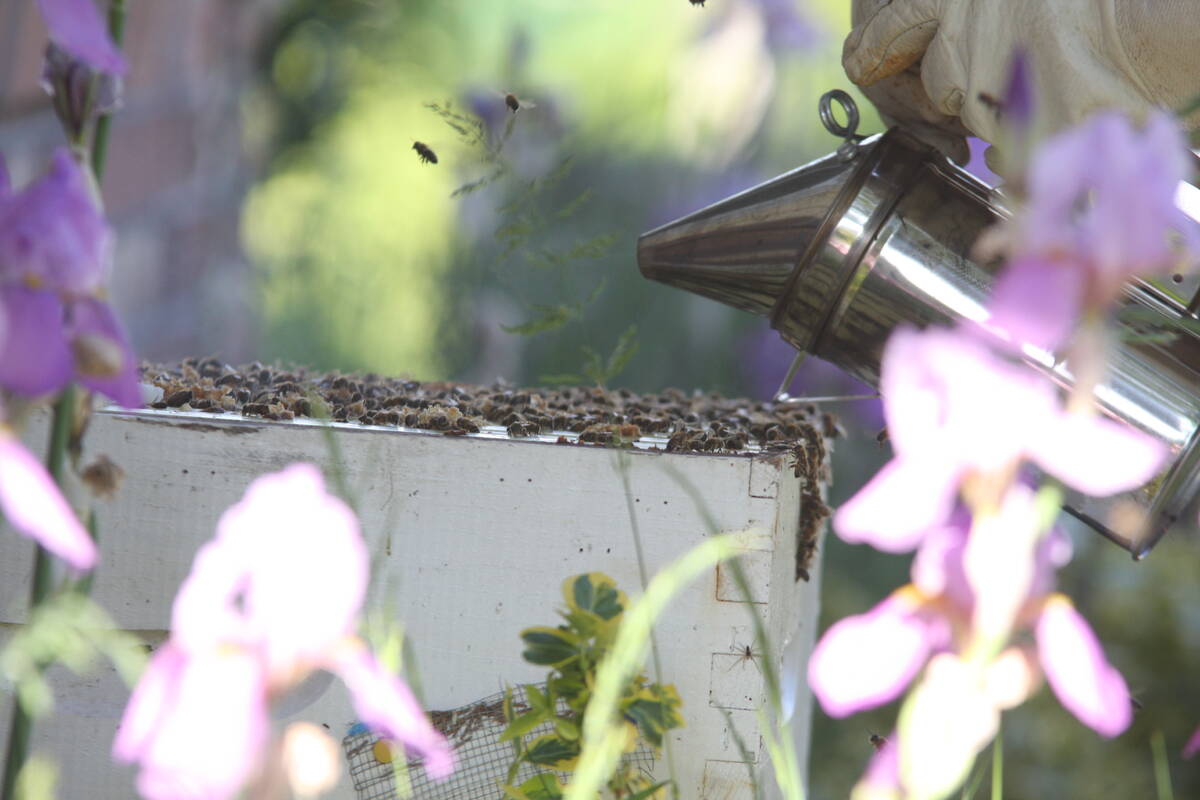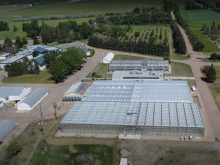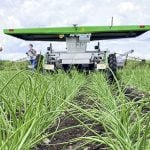VAWN, Sask. – At age 10, Tyler Blanchette haltered and tethered two steers fresh off the truck by himself.
By 14, he had opened his own chequing account and was buying and selling pigs.
“He has lived and breathed cattle,” says his father Maurice Blanchette. “He has natural gifts in animal husbandry.”
Now 21, Tyler is planning his future on the family’s 1,500-acre cattle farm.
“I always knew I would end up here,” said Tyler, who purchased cow-calf pairs in 1999 from his father Maurice, a car sales consultant in North Battleford.
Read Also

Manitoba beekeepers battle for survival
Honeybee colony losses have hit 43 per cent, making 2025 the latest in a string of poor bee survival years for Manitoba’s honey producers
Tyler was always the farmer in the family, said Maurice, whose children include Marc, 16, living on the farm with him and Tyler. Leslie, who hopes to pursue a career in education, lives with her mother in Lloydminster. Aaron, with a diploma in business administration, works for Credit Union Central in Regina.
In addition to the cow-calf operation, Tyler also does backgrounding, and like many farmers in this sandy soil ranching country, he works full-time in the oil fields near Edam.
Tyler has 40 cows and 135 yearlings, and is into his third calf crop. He dallied in exotics but came back to the Simmental-Hereford mix for ease of birthing and low maintenance. Now he feeds his cattle only once every three days.
His fiancée, Oralee Wood, helps out with checking cows, moving them and mending fences as required. Raised in North Battleford, she shares Tyler’s love of the farm’s potpourri of animals from cats to cattle. She grew up riding horses and was active in the Silver Spurs light horse
4-H club. They met at age 14 during a 4-H post-competition water fight – he was in a beef club.
Wood studies office administration in North Battleford and works part-time at the co-op. She already handles the farm’s bookkeeping and hopes to land a job in that field after graduation.
The pair hope not to rely on off-farm jobs forever. For now, their busy lives leave little time for the young couple, who visit while “choring” together, said Tyler. They also get together to ride horses and to compete in team roping events.
Tyler’s other passion is auction sales and the pursuit of “a good deal.”
“I like to buy things,” he said. “We have two microwave ovens now.”
That extends to cattle buying and he pointed to the 40 heifers he brought home the previous week.
His business plan is squarely centred on cattle: “I got no urge to sit on a tractor. I was not meant to be a dirt farmer.
“Money is too tight in grain and there’s too much operating costs with all the equipment you need.”
He keeps his costs down, growing some alfalfa for hay, baling on shares with neighbors who do the cutting, and sharing pastures with another neighbor. He has only a mix mill and a tractor, welds his own feeder bins and fixes machines rather than buying new.
He hires only at busy times like branding and extends his pasture by swath grazing late-seeded crop.
“Manure is out there on the fields and you don’t have to feed or to bale,” he said. He would also like to introduce rotational grazing.
Tyler lives off his derrick hand wages, around $40,000 a year. Farm income gets reinvested to keep it going and to gain equity.
“It don’t seem like you’re making money, but you are getting ahead,” he said.
Tyler hopes to start buying land, piece by piece from Maurice in the coming years. His father owns all the land and rents some to Tyler at $8,000 a year and charges $300 a month room and board.
Family transition
At age 28, Maurice bought the land from his father, who became his banker. That keeps the money in the family and allows his father to hold the title and receive a payback annually.
“We did the transfer without giving up control,” said Maurice, whose parents have a North Battleford condo and spend winters in Arizona.
Maurice once ran a labor intensive operation, managing 750 cows, 1,400 acres and three kids alone after he and his wife parted ways. The enormity of the work overwhelmed him and by 1996, he auctioned off the grain equipment.
“I was burned right out,” he said.
He took a hiatus, worked in the oil industry, then came back with low-maintenance Black Baldy heifers and a bull.
“There’s more money to be made in cattle if you never have to touch them and it’s a much more relaxed life,” said Maurice, who is planning a move off-farm within two years and a life “growing old together” with his girlfriend in Saskatoon.
Maurice, one of the founding directors and president of the Turtle River Feeder Co-op and a former Saskatchewan Cattle Feeder director, said Tyler learned a lot from a brief flirtation with exotics last year.
“He is incredibly aggressive; he is not afraid to borrow money,” he said.
Debt bothers Tyler little, as long as he has enough income to cover it, he said. His cattle are financed through the Vawn cattle co-op, where he serves as a director.
“There’s really no way to start without financing,” he said.
Tyler keeps abreast of the latest innovations and industry practices by reading various publications and as a member of a feeder group and cattle co-operative. He has taken livestock classes at Lakeland College and has also worked at other livestock operations.
Animals and farming also appeal to Wood.
“I hate being surrounded by people and the farm is somewhere to get away,” she said. “The animals don’t talk back.”
“There’s not a whole lot of people who want this lifestyle, not very many women want to be a farmer’s wife,” said Tyler, shyly alluding to children being part of his future with Wood.
“If you don’t plan on having kids, to me, you might as well not marry.”
Tyler would have liked a few more years to work or pursue his dream job as a cattle buyer.
“I wanted to see more than I’ve seen,” he said. “Somehow now I’m stuck here.”
He is seldom in the house before 10 p.m. and then up at 7 a.m. for his job on the rigs, but he is resigned to the life ahead of him.
“It’s worth the hardship to do it,” he said.
“To get a farm to sustain itself will take a lot of hard work.”














